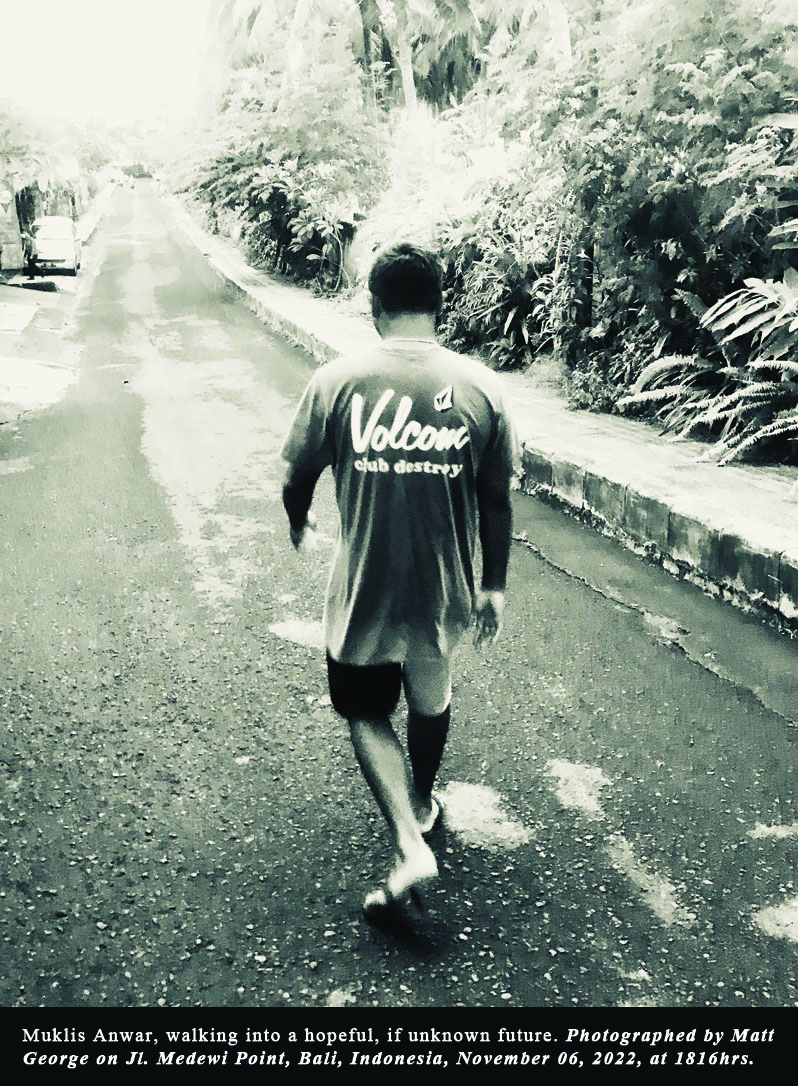LOOKING BACK THE LUCKY ONES

My Khe Beach in Vietnam is not all that far from Kuta Beach. But in history it’s more than a world away. Especially in the early 70’s, right around the time our great surf in Bali was being discovered by the outside world. Surf was being discovered at My Khe too. But under completely different circumstances. The Vietnam war was in full swing. And it’s blood ran right into the line-up at My Khe. A beach that the western servicemen called China Beach. Think about the following the next time you paddle out.
From the Encyclopedia of Surfing by Matt Warshaw:
You’d be surprised how perfect China Beach would get,” US Serviceman Larry Martin recalls. “The monsoon season was unreal, with huge waves up to 12 feet′”. For Martin, China Beach was a serviceman’s dream. “A guy’s been in the jungle for six weeks, tensed up the whole time, shot at, then he comes in and finds a surfboard. He paddles out and forgets about Vietnam. It makes him remember the old days in California. It didn’t look like you were in ’Nam, except for the lack of women on the beach.” To a lot of Marines, China Beach had the look and feel of the beach area at Camp Pendleton. If you squinted hard enough, the gun emplacements, tents, barbed wire, and sandbags might blend into the beach. If you could somehow ignore the gunships floating out past the lineup and the helicopters headed in-country, it might, just might, seem a bit like home. But these servicemen were never allowed to forget for any real length of time that they were in Vietnam; even at China Beach they were surrounded at all times by a bewildering war.

“I remember buying my first surfboard in Vietnam,” Martin recalls. “A nurse who was leaving had a beer party, and said she’d sell me her board for $80. We were walking up to her compound at the hospital to get it and as we crossed the landing pad these helicopters started bringing in wounded. Right in front of us they start pulling out guys who were all shot up. Medical people are running out with surgical clamps hanging all over their shirts, and they started jamming them into the open wounds, trying to stop the bleeding. I was walking between the choppers and I couldn’t believe it”. Told to get out of the way, Martin picked up his board, a 9’6″ Surfboards by Phil, and ran across the landing pad as more helicopters swarmed in. He stopped and stood there with his new board under his arm and watched. “Here were these guys who’d been in the jungle an hour earlier, getting shot at and killed, and there I was buying a surfboard.

When I got back to the beach the surf was about 5 foot. Offshore too. But I just sat on the beach by my board. Picking at the wax. I didn’t go out that day.” That’s how it went. China Beach was like Shangri-La, right up until the moment it wasn’t. One morning Martin walked across the airstrip and saw flag-draped coffins stacked in rows, waiting to be flown home. He saw Vietnamese war dead wash up on the beach. Now and then the “enemy” would infiltrate the compound with hand grenades. “We were out surfing one afternoon, sitting outside a few hundred yards. We heard rockets coming in and felt the compressions as they exploded. You’d see a rocket hit and count to four, then hear the sound. Boom! The Marine base up the beach was getting hit. Helicopters were trying to lift off and get clear, tents were collapsing and there were flashes from explosions. My buddy and I just sat there watching it all. All of a sudden the machine-gun fire started walking across the water toward us. Some “enemy” on from the beach were trying to shoot us. We paddled straight out and stayed out of range for four hours until we heard our guys on the beach hollering that it was safe to come in. It was spooky out there; it was dark, man. Finally we heard our guys on the beach hollering that it was safe to paddle in.
But we knew it wasn’t.”



Comments
Post a Comment